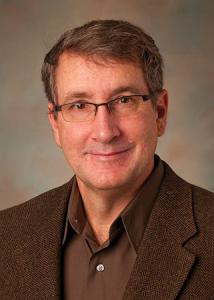
David M. Almeida, Ph.D.
Biography
I am a life-span developmental psychologist with a primary focus on stress and coping during middle adulthood. My research examines the effects of biological and self-reported indicators of stress on health. My primary interest has been the role of daily stress on healthy aging but I have also examined stress processes in specific populations and contexts, such as the workplace and family interactions, parents of children with developmental disabilities, and family caregivers. My research has shown that minor yet frequent daily stressors are often better predictors of important health outcomes than major life events, which have been the focus of research for decades. To further his research in this area, I developed an instrument, the Daily Inventory of Stressful Experiences that has been used in large scale epidemiologic and intervention studies on health and well-being. My research has received continuous funding from the National Institutes of Health since 1996, and has received funding from many other agencies, including the German Research Council, the Alfred P. Sloan Foundation, the W.T Grant Foundation, and the John D. and Catherine T. MacArthur Foundation. Much of my energy is currently directed at three Projects. I am the Principal Investigator of the National Study of Daily Experiences (NSDE) one of the in-depth studies that are part of the MacArthur Foundation National Survey of Midlife in the United States (MIDUS, http://www.midus.wisc.edu/). NSDE is the largest longitudinal diary study of daily experiences and health in the U.S. I also direct the Workplace Practices and Daily Family Well-Being Project a component of the Work, Family, Health Study (http://projects.iq.harvard.edu/wfhn). Our project investigates the daily health effects of an employer-initiated workplace program designed to increase employee flexibility and control over how and when their work is done and to increase the support of supervisors for employees’ work-family issues. More specifically, we study a subsample of employees and their children in more depth to assess whether the outcomes of workplace program spill over to improve employees’ daily parenting and health and cross over to daily family processes and health in children. This project characterizes daily experiences and functioning using nightly telephone interviews as well as momentary measurements of salivary cortisol. I am also a Co-PI for the QUick Interventions Nomographically-tailored for Cognitions and Emotions [QUINCE] Project a component of the Science and Behavior Change Study (https://scienceofbehaviorchange.org/). Our project investigates the utilization of an experimental medicine approach to develop an efficient, ecologically valid, within-person approach to measuring and intervening on the deleterious effects of everyday stress on meeting recommended levels of two health behaviors: physical activity and sleep patterns. In Phase 1, we will develop, validate and deliver a stress assay that assesses malleable components of the stress process that drive health behavior decisions and enactment as they unfold, in real-time and in individuals' natural environments. In Phase 2, we will use this assay to evaluate "just-in-time" intervention approaches that target specific stress response components at times and in contexts when they are most malleable and can positively impact health behaviors. In contrast to previous daily stress studies, we will conduct coordinated analyses in several intensive longitudinal datasets separating effects of stressor reactivity, recovery and pile-up on health behaviors. By replicating the results across these studies we will ensure identification of the most reliable and potent targets for intervention.
Research Interests
Daily Stress Processes; Adult Development; Family Factors in Mental Health; Work and Family Linkages; Work Place Interventions; Biological Markers of Health and Well-being
Education
- Ph.D., Psychology, University of Victoria, 1993
- M.A., Psychology, University of Victoria, 1990
- B.A., Psychology, California State University, Northridge, 1987